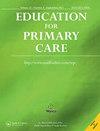Improving medical students' understanding of dementia using a movie (The Father).
IF 1.5
Q3 PRIMARY HEALTH CARE
引用次数: 0
Abstract
Since the late 1970s, there has been an enduring interest in the use of movies within medical education [1]. Movies provide an opportunity for students to gain a more nuanced appreciation of a person’s experience of illness. Although various educational innovations have been proposed to improve knowledge, skills and attitudes among healthcare students regarding dementia [2], it appears that the utility of movies for this purpose is underexplored. The Father is a psychological drama film released in 2020, centred on the life of an ageing individual with dementia. Reviewing the movie for The Guardian, Bradshaw writes, ‘What is deeply scary about The Father is that, without obvious first-person camera tricks, it puts us inside Anthony’s head’ [3]. Rai and Banerjee (2022) expressed a similar sentiment, ‘Maybe, for the first time in cinematic history, the viewer gets a first-person experience of the sense of bleak obscurity dementia entails’ [4]. Thus, we proposed that watching The Father could enhance students’ understanding of dementia. Students undergoing their final-year psychiatry training at the University of Kelaniya were invited to watch the movie and provide their feedback. In terms of the students’ responses (n = 108), 90.6% reported that they got ‘really involved with the feelings of the characters’ and 88.8% of students agreed they could see things from the main character’s point of view. Further, 56.5% agreed that they felt as if the events were happening to them while watching the movie. The students also responded extremely positively on the impact of the movie on their understanding of dementia, with 96.3% reporting that the movie helped them understand the difficulties experienced by a patient with dementia; 98.1% agreeing that the movie helped them to understand the difficulties experienced by dementia caregivers; 92.5% agreeing that it improved their overall understanding of dementia. The overall quality of the movie experience was rated, on a scale of 1 to 10, at an average of 8.1 (SD = 1.1). Students correctly identified many clinical features of dementia portrayed in the movie including short-term memory loss (92.6%), progressive cognitive decline (89.8%) and sudden mood changes (85.2%). This educational innovation and its evaluation provide evidence that the movie, The Father, can be a useful educational tool to be added to the undergraduate training programme to improve students’ understanding of the lived experience of dementia. Considering the impact of dementia and its burden, all primary care doctors need to empathise with and support individuals and families experiencing the reality of living with dementia. Future studies will have to explore whether exposure to such films really brings behavioural change, by assessing attitudinal change in practice settings in the real world after the students enter qualified practice.利用电影提高医学生对痴呆症的认识(《父亲》)。
本文章由计算机程序翻译,如有差异,请以英文原文为准。
求助全文
约1分钟内获得全文
求助全文
来源期刊

Education for Primary Care
PRIMARY HEALTH CARE-
CiteScore
2.30
自引率
15.40%
发文量
51
期刊介绍:
Education for Primary Care aims to reflect the best experience, expertise and innovative ideas in the development of undergraduate, postgraduate and continuing primary care education. The journal is UK based but welcomes contributions from all over the world. Readers will benefit from the broader perspectives on educational activities provided through the contributions of all health professionals, including general practitioners, nurses, midwives, health visitors, community nurses and managers. This sharing of experiences has the potential for enhancing healthcare delivery and for promoting interprofessional working.
 求助内容:
求助内容: 应助结果提醒方式:
应助结果提醒方式:


